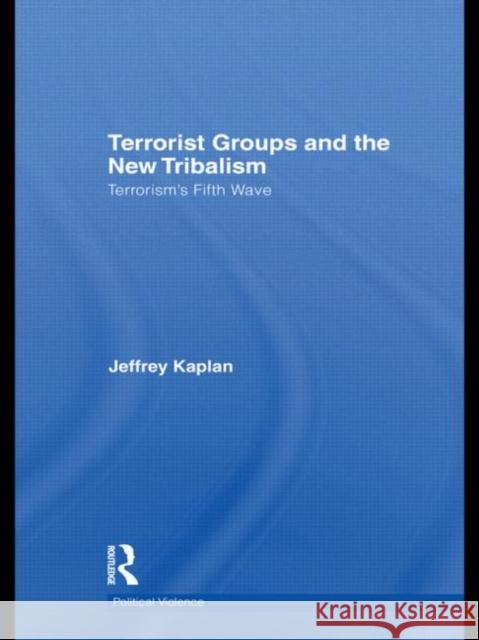Terrorist Groups and the New Tribalism: Terrorism's Fifth Wave » książka
Terrorist Groups and the New Tribalism: Terrorism's Fifth Wave
ISBN-13: 9780415453387 / Angielski / Twarda / 2010 / 256 str.
Terrorist Groups and the New Tribalism: Terrorism's Fifth Wave
ISBN-13: 9780415453387 / Angielski / Twarda / 2010 / 256 str.
(netto: 792,97 VAT: 5%)
Najniższa cena z 30 dni: 730,42
ok. 16-18 dni roboczych.
Darmowa dostawa!
The central focus of this book is a small but vitally important group of movements that constitute a distinct 'fifth wave' of modern terrorism, here called the "New Tribalism." Terrorist Groups and the New Tribalism examines a collection of terrorist or insurgent movements whose similarity in tactics, strategic vision and desire to radically reshape their worlds to conform with a 'Golden Age' dream of perfection which is to be achieved through a genocidal or ethnic cleansing process to make way for the emergence of a new, radically perfected tribal utopia in a single generation. These shared strategic and tactical factors allow them to be examined through a comparative lens as a distinct 'fifth wave' of modern terrorism. Structured around the theoretical framework of David Rapoport's Four Waves thesis, the book examines anomalous movements that began within a distinct wave of international terrorism, but, following a crisis model, has turned inwards toward radical localism, tribalism and xenophobia. The text is divided between theory and in depth case studies of the Ugandan Lord's Resistance Army and the Sudanese Janjaweed. It concludes with a design for further, field-work based research. This book will be of interest to students of Terrorism and Political Violence, Genocide, Conflict Studies, African politics and Political Science in general. Jeffrey Kaplan is an Associate Professor of Religion and the Director of the Institute for the Study of Religion, Violence and Memory at the University of Wisconsin Oshkosh. He is the author of 11 books on terrorism and political violence.
The central focus of this book is a small but vitally important group of movements that constitute a distinct 'fifth wave' of modern terrorism, here called the "New Tribalism". The book critiques David Rapoportâs Four Waves theory, arguing that the theory does not account for movements which radicalize and turn inward, losing touch with, or interest in, their foreign compatriots. This is demonstrated by the Khmer Rouge, the group posited to be the precursor of the contemporary fifth wave.
Ultimately, this book aims to understand the factors and conditions which lead to the radicalization process that catalyzes fifth-wave terrorism, seen as the apex of terrorist violence. The fifth wave groups seek nothing less than the creation of new men and new women within a single generation, requiring the implementation of genocidal violence within a nation or tribal group. Today, the primary cases of fifth wave terror are found in Africa, and thus the case studies which follow the Khmer Rouge are African. Case studies include the Lordâs Resistance Army in Uganda, the Interhamwe in Rwanda, and the Muslim Janjaweed in the Sudan.











